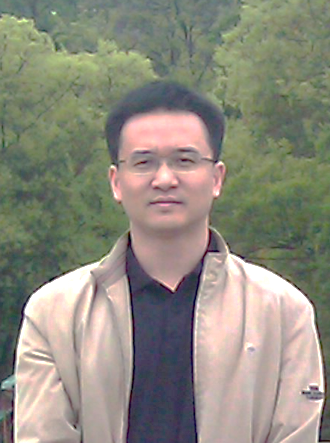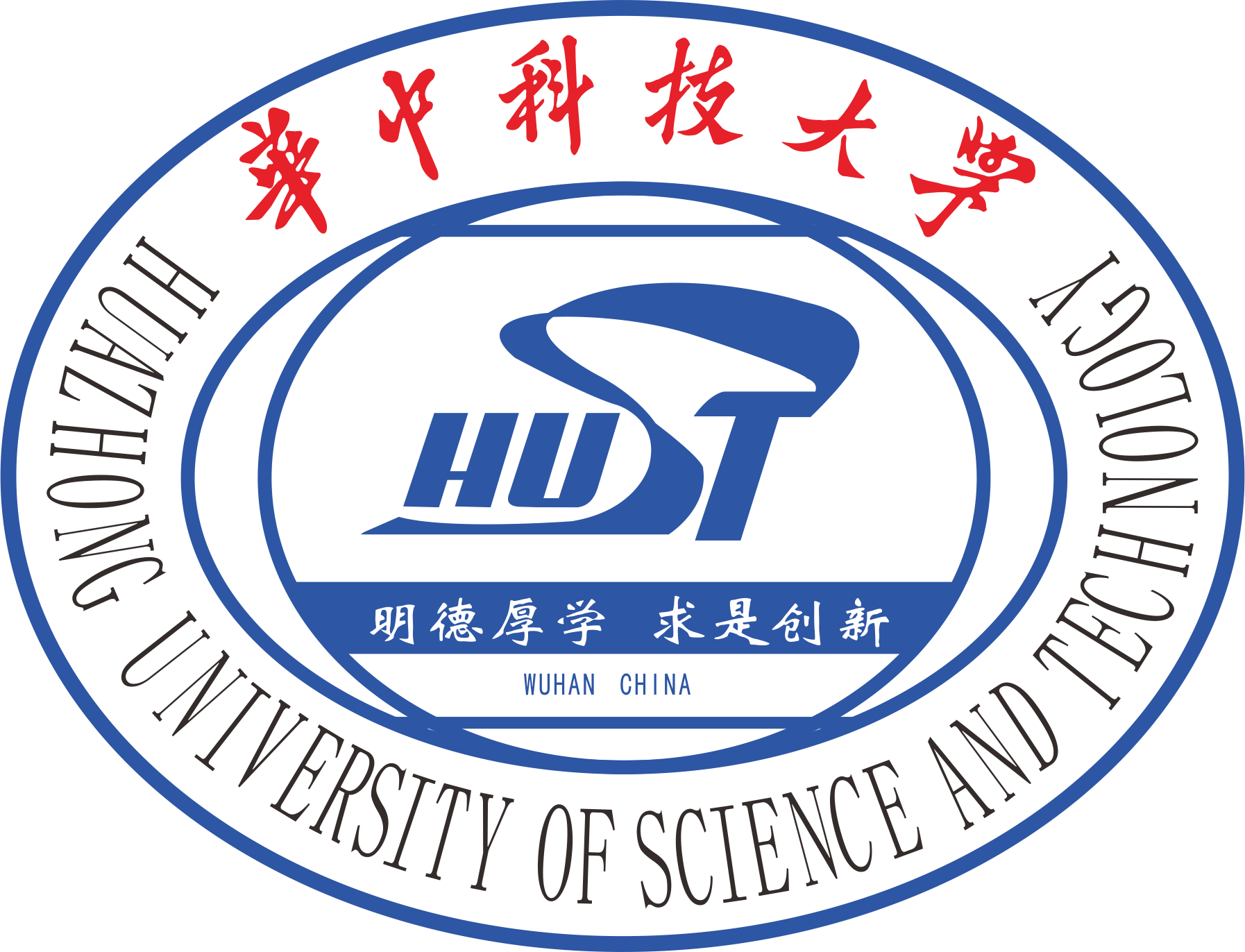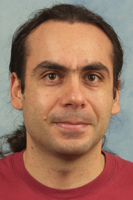
13-14 May 2017 | Huazhong University of Science and Technology, Wuhan, China |
Keynote speakers
|
SPEECH: Compact Representation of Multivariate Sequences using Structural Laplacian Eigenmaps
Dr Dimitrios Makris, Digital Imaging Research Centre at Kingston University, UK
Dr Dimitrios Makris is an Associate Professor at the Digital Imaging Research Centre at Kingston University . His research interests are Computer Vision, Machine Learning and in particular Motion Analysis and Dimensionality Reduction.His work on learning scene semantic models and on multiple camera surveillance systems has been highly acknowledged by the international research community as reflected by the high number of citations. His recent work is in the area of non-linear dimensionality reduction of time sequences (incl. Best Poster Paper in BMVC11) with applications in human action recognition, style modelling and human body tracking.Dr Makris has been awarded a number of research project as principal investigator and has been financially supported by EPSRC, TSB as well as national (Ipsotek Ltd, Legion Ltd) and international companies (BARCO Ltd/Belgium, LG Electronics/Korea).He was the coordinator of the EPSRC Network on Vision and Language (VL-Net), the organizer of the IEEE workshops series on Visual Surveillance (2005-2008), the BMVA/EPSRC Summer School on Computer Vision (2009-2010) and the BMVA technical meetings (2008-2012). He was the invited speaker in Second IEEE International Workshop on Tracking Humans for the Evaluation of their Motion in Image Sequences (THEMIS2009). He was one of the only two UK academics that have been interviewed by ZDF/Discovery Channel for their documentary: "2057 – The World in 50 years" |
|
|
|
SPEECH: An optical fibre based ex-vivo device for detection of cytokines Prof. Guozhen LIU, ARC Centre of Excellence in Nanoscale Biophotonics, Macquarie University, Austrilia
Prof Guozhen Liu is an Australian Research Council Future Fellow, who holds a Master degree (2000) in Analytical Chemistry from China University of Geosciences, and a PhD (2006) in Chemistry at University of New South Wales (UNSW), Australia. Liu conducted her postdoctoral research at CSIRO (2006-2008) and UNSW (2008-2010) before she accepted a full time position of Associate Professor at the Central China Normal University. Liu achieved her industrial experience as the R&D Manager, China (2011- 2015) on developing medical devices at AgaMatrix Inc., a US based company for making glucose test strips and glucose meters. After that, she is working at ARC Centre of Excellence for Nanoscale BioPhotonics at Macquarie University, and focusing on development of intelligent nanotools for early disease diagnosis and therapy. Liu has co-authored over 50 peer-reviewed research papers, 1 book chapter and 7 patents. She has attracted more than $2m research funding from both China and Australia. She specializes in the molecule level modification of surfaces using self-assembled monolayers, biosensors, single cell analysis, and medical device development.
|
| SPEECH: The Brainnetome Atlas and its Applications in Cognition and Brain Diseases
Prof. Tianzi JIANG, Brainnetome Centre, Institute of Automation, the Chinese Academy of Sciences, China
Tianzi Jiang is Professor and Director of Beijing Key Laboratory of Brainnetome, Director of the Brainnetome Center, the Institute of Automation of the Chinese Academy of Sciences, the core member of CAS Center for Excellence in Brain Science and Intelligence Technology, and Professor of Queensland Brain Institute, University of Queensland. He received his BSc degree at Lanzhou University in 1984 and PhD degree in computational mathematics from Zhejiang University in 1994. He worked as a postdoctoral research fellow (1994-1996) and an Associate Professor (1996-1999), and full professor (1999-present) at CASIA. During that time, he worked as a Vice-Chancellor's postdoctoral fellow at the University of New South Wales, a visiting scientist at Max Planck Institute for Human Cognitive and Brain Sciences, a research fellow at the Queen’s University of Belfast, and a visiting professor at University of Houston. His research interests include neuroimaging, brainnetome, imaging genetics, and their clinical applications in brain disorders. He is the author or co-author of over 200 reviewed journal papers in these fields and the co-editor of six issues of the Lecture Notes in Computer Sciences. He is Associate Editor of Frontiers in Neuroinformatics, and Neuroscience Bulletin and Section Editor of BMC Neuroscience.
|
|
 |
SPEECH: All-Digital PET Everywhere
Prof. Qingguo XIE, Department of Biomedical Engineering, Huazhong University of Science & Technology, China
Qingguo Xie received his B. Sc. in Industrial Automation from Huazhong University of Science and Technology (HUST) in 1994, M. Sc. in Industrial Automation from Dalian University of Technology in 1997, and Ph. D. in Electrical Engineering from the HUST in 2001. Dr. Xie is currently a distinguished professor working with the Department of Biomedical Engineering at the HUST, and an adjunct professor with the Wuhan National Lab for Optoelectronics (WNLO). His research interest centers on positron emission tomography (PET) imaging science and its biomedical applications. He founded the PETLab at the HUST in 2001. PETLab@HUST is now an intellectual destination that draws inspired scholars to “Visualize the invisible, Envision the future”. In the lab, 4 professors from China and Europe, 3 postdoctoral scholars, 33 graduate students, and ~10 college students are working in physics, information technology, optoelectronics technology for the development of all-digital PET instrumentation and its biomedical applications, ranging from the development of key components such as new photodetectors for building PET detectors, the development of multi-voltage threshold (MVT) enabled all-digital PET detector technologies for imaging, to the building of complete imaging systems for specific biological or medical applications. The lab is exploring new applications of molecular imaging technologies for both preclinical and clinical researches & trials in cancers and brain disorders, and the development and validation for new drugs and therapeutic approaches. Dr. Xie has served, and is serving, as a charter member of study sections and/or grant reviewer for National Science Foundation of China (NSFC) and other funding agencies, universities, and hospitals. He has been devoted himself to mentoring students and post-doctoral fellows, who have also received numerous awards for their accomplishments. Most of his past students have successfully developed their own research programs in pioneer industrial R&D centers and academic institutions. |






